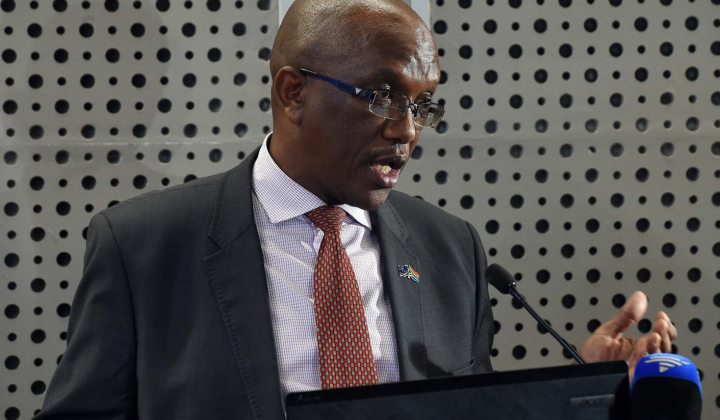Auditor-General Report
No consequences for 98% of misuse of public money in SA

Who would want to audit South Africa’s public finances? Dealing with intransigent state officials, chasing up ‘missing’ documentation, sometimes being physically threatened – work at the Auditor-General’s office hardly sounds like a picnic. But at a panel discussion in Cape Town following the release of the 2018 audit outcomes, a note of optimism was also sounded. It takes the form of new legislation which may finally give the state’s auditors the necessary powers to enforce currently lacking consequences for financial mismanagement.
“Joy and adrenaline.”
That’s how Jan van Schalkwyk, corporate executive in the Auditor-General’s office, expressed his response to the news that the long-awaited Public Audit Amendment Act had been signed into law by President Cyril Ramaphosa three days before the country’s audit outcomes were released on Wednesday.
For Van Schalkwyk, this piece of legislation could hold the key to supplying something that South Africa’s public entities are sorely lacking: consequences for irregular spending.
“We know what we need to do in South Africa. We’ve probably got the money,” Van Schalkwyk told an audience at UCT’s Graduate School of Business on Wednesday evening.
“But damn, we’re not good at consequences.”
Van Schalkwyk estimates that over 98% of irregular expenditure of public funds in South Africa is not followed up on in any meaningful way. And there’s a lot of it: “probably R160-billion” over the past few years, the auditor says.
Irregular expenditure does not refer to flat-out theft.
“This is money that was spent – you can find that there is a product or a service [involved],” said van Schalkwyk. “It’s money spent where there was no respect for law.”
When it comes to both irregular expenditure and fruitless and wasteful expenditure – the latter increasing 200% over the last year – the same offenders keep popping up in government: the departments dealing with water, health, and education.
Associate Professor Derek Powell, of the Dullah Omar Institute, suggested that provincial governments were under-scrutinised in this regard.
Powell pointed out that the bulk of funding for provincial governments goes to remuneration in the fields of health and education.
“It’s always the national minister out there on education and health, and yet it’s [provincial] premiers who should be talking much more on that,” Powell said.
In terms of the provinces, the Western Cape and Gauteng have again emerged as the good news stories of the audits.
Though the DA has already released a statement congratulating itself on running the “cleanest government”, in the form of the Western Cape, Van Schalkwyk cautioned that direct comparisons between the two top provinces are misleading because Gauteng and the Western Cape are “structurally so different”.
But he said much could be learnt from both provinces.
“[You have] good internal controls, good reporting, good follow-up and the results are there,” Van Schalkwyk said.
UCT researcher Dr Andrew Siddle suggested another two reasons for the top performance of the Western Cape and Gauteng.
“Both have traditionally been far better resourced when it comes to HR,” Siddle said, which he highlighted as a critical element.
In addition, however, what the two provinces have in common is political competition.
“The fear of politicians being voted out is what keeps them on their toes, and this is a more likely possibility in Gauteng and the Western Cape than in other provinces,” Siddle said.
While irregular and fruitless expenditure tend to hog the headlines, Van Schalkwyk also drew attention to the worrying trend of non-compliance with the Auditor-General’s office from public entities. This year, there were 41 unfinished audits because the relevant entities failed to supply their records in time.
“Why would you not have your records ready by the end of the year?” asked van Schalkwyk. “These are the guys that sit with huge irregular expenditure, and have ‘lost’ documents.”
In addition, R5-billion of transactions using public money could not be audited because there was absolutely no documentation available.
“People ask us why the Auditor-General never picked up Nkandla,” said Van Schalkwyk. “This is why – because the documents weren’t there.”
In addition to non-cooperation with the Auditor-General’s office, van Schalkwyk also expressed concern at recent reports of state auditors being threatened – and in one case in October, shot.
But even despite these threats to security, the auditor said that the political climate in which their work is carried out is currently “a hell of a lot better than it was in the past”.
While the office is pinning its hopes on the Public Audit Amendment Act bestowing greater authority on its findings, a few other suggestions have been made to ensure that 2019’s audit outcomes paint a more positive picture.
The Auditor-General has called on oversight bodies – including Parliament’s portfolio committees – to do their jobs better.
When it comes to state-owned entities, Van Schalkwyk pointed out that each SEO is attached to a government department, which should sharpen its watchdog role.
“The mother departments can wake up,” he said.
From the perspective of Siddle, it would also be helpful for South Africa’s institutions of higher learning to step up and devote more time to teaching students about public sector financial management.
“The general feeling within commerce departments is that it’s all about your private sector. SAICA [the South African Institute of Chartered Accountants] is our god,” Siddle said.
During question time, a member of the audience voiced frustration.
“What is the point of all this detailed audit,” he asked, in a country hollowed out by State Capture and endemic corruption?
Van Schalkwyk responded that the 2018 audit outcomes “point directly to what happened in State Capture”. He said that everything former Finance Minister Pravin Gordhan had told the Zondo Commission in recent days could be correlated with the audit findings.
“As auditors, we knew things were going wrong,” he said. “What stopped anything happening [to fix it] was political will.” DM


















 Become an Insider
Become an Insider